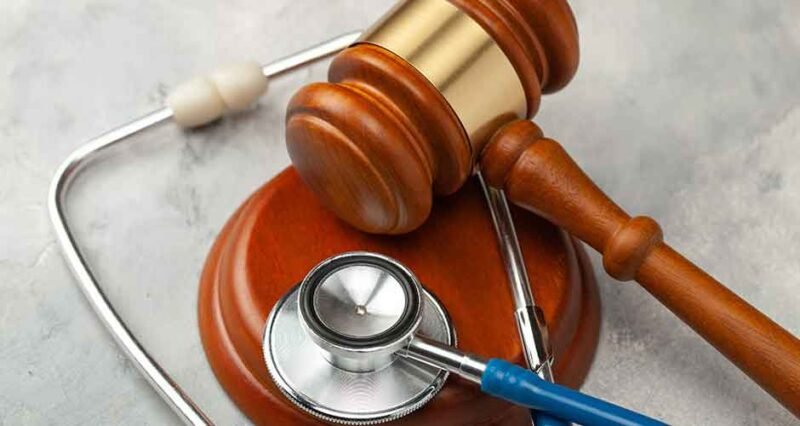
A visit to the doctor, meant to help and comfort, may sometimes turn out to be very difficult. Even though most healthcare providers aim for the best results, there are times when things go wrong. These problems can include things like getting the wrong diagnosis or mistakes with medications. This not only causes patients physical and emotional pain but can also lead to legal issues.
Understanding Medical Accidents and Your Rights
A medical accident, often called medical negligence, happens when a healthcare provider doesn’t meet the standard of care, causing harm to the patient. This standard expects medical professionals to have the right skills and knowledge, act carefully, and follow established medical rules. It’s important to know the difference between accidents and complications that can happen even with good care.
Here are some common types of medical accidents:
Misdiagnosis: Not diagnosing a condition or diagnosing the wrong one, leading to delayed treatment and worse outcomes.
Surgical errors: Mistakes during surgery, like operating on the wrong body part or leaving instruments inside the patient.
Medication errors: Prescribing, giving, or administering the wrong medication or dose, causing bad reactions or ineffective treatment.
Hospital-acquired infections: Patients getting infections during their time in healthcare facilities because of poor hygiene or care.
As a patient, you have important rights to help you handle such situations:
Informed Consent: You have the right to know all about a proposed treatment, including risks, benefits, and other options. You need to agree before any medical procedure.
Access to Medical Records: You can see and check your complete medical history, including test results, diagnoses, and treatment plans. This info is crucial for understanding your condition and taking legal action if needed.
Communication and Explanation: You deserve clear explanations from healthcare providers about your diagnosis, treatment options, and what might happen. Ask questions if things are unclear.
Second Opinions: You can get advice from another healthcare professional if you’re worried about your diagnosis or treatment plan.
Filing a Complaint: If you’re worried about the care you got, you can complain to the healthcare facility or the relevant regulatory body. This can help protect other patients and make needed changes in how things are done.
Navigating the Legal Landscape
If you believe you’ve been harmed by a medical accident, it’s important to consult with a medical malpractice attorney. These attorneys specialize in this complex area of law and can help you gather evidence, prepare your case, and seek compensation. Here are some key steps involved:
Evidence Gathering: Collect medical records, statements from witnesses, and opinions from experts to support your claim. This evidence forms the basis of your case.
Pre-filing Stages: Explore options outside of filing a lawsuit, such as mediation or negotiations with the healthcare provider, to reach a settlement. This can be a quicker and less expensive way to resolve the issue.
Filing a Lawsuit: If necessary, your attorney will file a lawsuit on your behalf. This document outlines the negligence of the healthcare provider and the damages you’ve suffered. The court will then assess the validity of your claims, and if successful, may award damages to compensate for medical expenses, lost wages, pain and suffering, and other losses.
Finding Support and Resources
Dealing with the emotional and financial challenges of a medical accident can be a lot to handle. Luckily, there are several resources and support groups that can offer valuable help:
Patient Advocacy Groups: Organizations like the American Medical Association and the Patient Advocate Foundation provide information, support, and legal advice to patients who have been through medical harm.
Legal Aid Organizations: If you can’t afford a lawyer, non-profit legal aid organizations can assist you with your case or connect you with a medical malpractice attorney who offers their services with a contingency-based fee rather than having to pay upfront, which could help you actually fight for your claim.
Online Resources: Websites such as PatientsLikeMe and Healthgrades have support communities and forums where you can connect with others who have gone through similar experiences. These online platforms can be a source of information and emotional support during challenging times.
Empowerment Through Knowledge
Understanding your legal rights after a medical accident gives you the power to make informed choices, pursue justice, and rebuild your life. By knowing the legal situation, standing up for yourself, and using the resources at your disposal, you can navigate through this tough experience with strength and resilience. Always remember, you’re not alone, and there’s support ready to help you at every stage of this journey.


